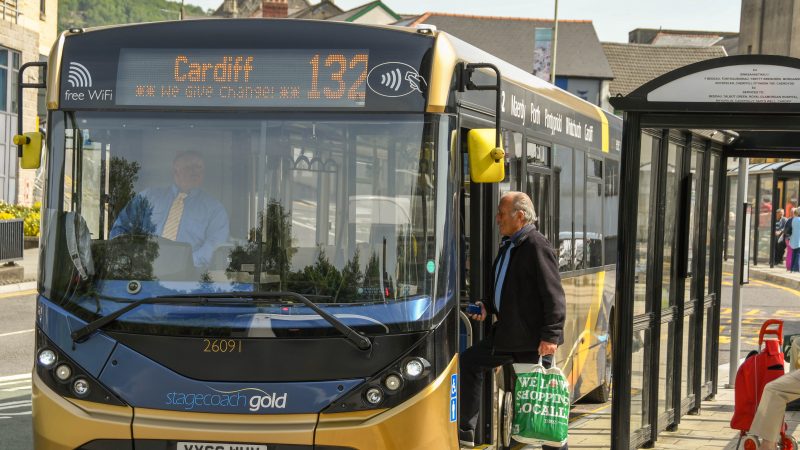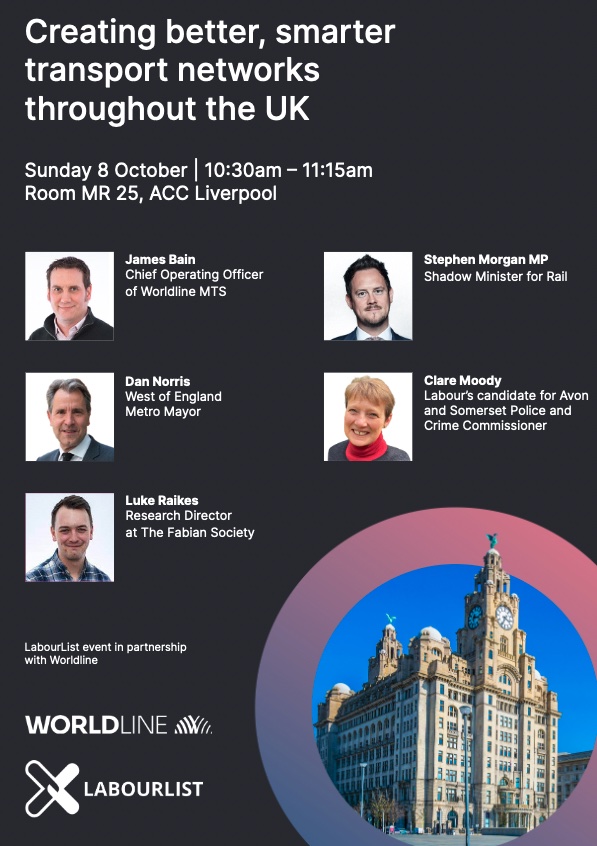
Transport underpins everything we do. It is fundamental to our ability to connect with our friends and family, access training and employment opportunities and make the most of our leisure time. Despite being in the digital age, and in a post-Covid world, people still want to travel. Good, universal access to public transport plays a vital role in shaping our society.
Successive policy failures in transport, including broken promises on Northern Powerhouse Rail and a scaled-back HS2 which may not even reach London, never mind Leeds and Manchester, mean the UK’s transport infrastructure is outdated and not fit for purpose. Since 2010, the number of bus services in England has been cut by 7,000, and there are fewer buses on the road than at any other time on record.
Complicated fare systems with ticket prices regularly rising above the rate of inflation, a lack of services, no integration between modes and failing operators being unable to run services have created dissatisfaction with public transport in the UK. It’s no surprise that across all modes of public transport, customer usage has yet to return to pre-Covid levels.
The UK’s transport system needs systemic change
Worldline is a digital payments and transactions company. In the UK, our main market is transport, and we work closely with the transport sector to deliver data-led smart transport solutions across buses, trains and forms of micro-mobility like bicycles and e-scooters.
We’re working closely with mayor Dan Norris and his team in the West of England combined authority to connect people in Bath, Bristol and surrounding areas with simple journey planning and payments platforms that enable easier access to more efficient and affordable journeys. Put simply, we are providing the ability to connect different modes of transport with a single payment and account and confidently get people where they need to go, using the best combination of services for them.
The UK’s transport system needs systemic change to shake it out of its malaise. Otherwise, we risk perpetuating the same challenges for a new generation. A lack of focus on our future customers is already being felt. A study by Transport Focus found that young people lacked confidence in using buses to travel and were anxious about getting their journey and fare correct. Similar issues persist across rail.
Addressing this challenge needs imaginative, proactive solutions. So Worldline is championing a new proposal for free, concessionary travel for all under-18-year-olds in full time education or training across all forms of public transport, across the whole UK.
Free travel for under-18s could have social and economic benefits
An under-18s travel concession policy could have huge social and economic benefits. Offering free travel to this demographic will build confidence in using public transport from a young age, increasing independence and resulting in long-term behavioural changes. Car ownership and use is low among young people, with 0- to 21-year-olds taking the least trips and travelling the shortest distance by car each year. This generation needs public transport to work for them, and delaying the point at which people choose to learn to drive from 17 into their 20s is enough to shape habits. Our report has found that a beneficiary of free travel would drive around 30% less miles in their lifetime.
The savings families can make during a cost-of-living crisis should be welcomed. We can slash school transport costs for families, saving parents around £500 per child, per year.
The government’s own analysis has found that loneliness has negative economic impacts and costs the UK around £10,000 per person, per year. Transport connects us, and bringing down barriers to our friends, family and opportunities to take part in sports, leisure, the arts and culture will help combat the feelings of isolation that young people face.
This is also about creating a shift in the way people in the UK look at public transport. We can help establish a whole generation of customers who view public transport as their best option for getting from A to B. This will create a stronger case for greater sustained investment in transport infrastructure.
How could Labour put customers at the heart of transport policy?
Working with LabourList, Worldline has organised a panel discussion at this year’s Labour Party conference, ‘Creating better, smarter transport networks throughout the UK’. I will be speaking on the panel, and I want to use this opportunity to stimulate a discussion around what is possible for transport in the UK and what a Labour government will do to put the customer at the centre of its transport policy.
If you’re attending Labour Party conference, you’re invited to hear more about Worldline’s initiatives on creating a better transport network in the UK in room MR 25 at the ACC between 10:30 and 11:15 on Sunday October 8th.





More from LabourList
SPONSORED: ‘Industrial hemp and the challenge of turning Labour’s priorities into practice’
‘A day is a long time in politics, so we need ‘action this day’’
Strong support for child social media ban among Labour members, poll reveals